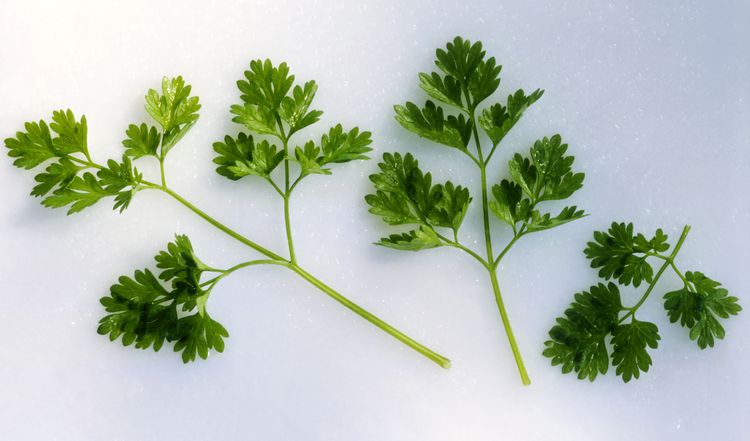Health Benefits of Chervil
What are the health benefits of chervil?
Chervil is a delicate herb with a subtle flavor that offers several potential health benefits. Here are some of the key benefits associated with chervil:
- Nutrient-Rich: Chervil is a good source of vitamins and minerals, including vitamin C, vitamin A, iron, and calcium, which are important for overall health and well-being.
- Digestive Aid: Chervil has traditionally been used as a digestive aid, as it may help stimulate digestion and alleviate symptoms such as bloating, gas, and indigestion.
- Anti-inflammatory Properties: Chervil contains compounds that have anti-inflammatory properties, which may help reduce inflammation in the body and lower the risk of chronic diseases such as heart disease, arthritis, and diabetes.
- Antioxidant Benefits: Chervil is rich in antioxidants, which help protect cells from damage caused by free radicals, reducing the risk of oxidative stress-related diseases and premature aging.
- Immune System Support: The vitamin C content in chervil can help boost the immune system, enhance the body’s ability to fight off infections, and promote overall immune health.
- Culinary Uses: Chervil is often used as a culinary herb to add flavor and aroma to dishes. It is particularly popular in French cuisine and is used to season soups, salads, sauces, and stews.
- Diuretic Properties: Chervil has diuretic properties, meaning it may help increase urine production and promote the elimination of waste and toxins from the body.
- Mild Sedative: Chervil has been used traditionally as a mild sedative, which may help promote relaxation and alleviate mild anxiety and stress.
Overall, chervil is a versatile herb that can be a flavorful addition to your diet while potentially offering several health benefits. Incorporating chervil into your diet may help enhance both the taste and nutritional value of your food.
What are the health risks of chervil?
Chervil is generally safe for most people when consumed in moderate amounts as a culinary herb. However, there are a few considerations and potential risks associated with chervil:
- Allergic Reactions: Some individuals may be allergic to chervil or other herbs in the Apiaceae family, such as parsley, dill, or cilantro. Allergic reactions can range from mild symptoms such as itching and hives to more severe reactions like swelling of the face, lips, or throat, which can be life-threatening in rare cases.
- Skin Sensitivity: Chervil contains certain compounds that can cause skin sensitivity, particularly when exposed to sunlight. This can lead to a skin condition known as phytophotodermatitis, which causes redness, blistering, and skin irritation.
- Pregnancy and Breastfeeding: There is limited information available regarding the safety of chervil during pregnancy and breastfeeding. It is advisable for pregnant or breastfeeding women to consult with a healthcare professional before consuming chervil in large amounts.
- Drug Interactions: Chervil may interact with certain medications, including blood thinners, diuretics, and medications for high blood pressure. If you are taking any medications, it’s advisable to consult with a healthcare professional before consuming chervil in large amounts.
- Contamination: Like other fresh herbs, chervil can be contaminated with harmful bacteria if not properly washed, stored, or handled. To reduce the risk of foodborne illness, it’s important to wash chervil thoroughly before consuming it.
Overall, chervil is a safe and flavorful herb when consumed in moderation as part of a balanced diet. However, individuals with known allergies to herbs in the Apiaceae family or those with skin sensitivities should exercise caution when using chervil. If you have any concerns or experience adverse reactions after consuming chervil, it’s best to consult with a healthcare professional.




